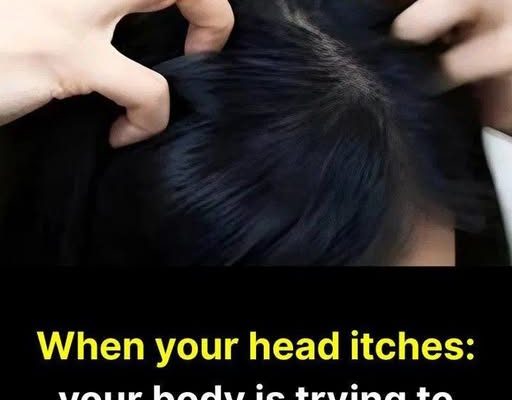An itchy scalp can feel like a minor annoyance at first, but when it lingers, it’s often your body’s way of signaling that something isn’t quite right. Persistent itching can disrupt focus, interfere with sleep, and even affect confidence, especially if it leads to visible flakes or redness. While scratching may provide momentary relief, understanding the underlying cause is the real key to lasting comfort.
Several common conditions are known to trigger scalp itching. Identifying which one is affecting you can make treatment more effective and help you prevent flare-ups in the future.
Top Causes and Solutions
1. Dandruff/Seborrheic Dermatitis
Dandruff is one of the most frequent culprits behind scalp itch. It occurs when yeast on the skin feeds on natural oils, leading to flakes and irritation. Seborrheic dermatitis is a more severe form, often causing redness and stubborn patches. Specialized shampoos containing ketoconazole, zinc pyrithione, or selenium sulfide can help control the yeast and reduce flaking.
2. Psoriasis
Psoriasis is an autoimmune condition that speeds up skin cell turnover, leading to thick, scaly patches. When it affects the scalp, itching can be intense. Medicated shampoos, topical corticosteroids, and stress management techniques can help control flare-ups. Since stress often worsens psoriasis, practicing mindfulness or yoga may be as important as medical treatments.
3. Fungal Infections
Ringworm of the scalp (tinea capitis) is caused by fungi that invade the hair shafts and skin. This condition may cause red, scaly patches and even hair loss in affected areas. Unlike dandruff, over-the-counter shampoos usually aren’t enough—oral antifungal medication prescribed by a doctor is often necessary.
4. Allergic Reactions
Hair dyes, shampoos, and styling products sometimes contain harsh chemicals or fragrances that can irritate the scalp. If your itch flares after trying a new product, an allergy could be the cause. Always patch-test products before full use, and opt for hypoallergenic, fragrance-free, or gentle formulas whenever possible.
5. Sunburn
Just like the skin on your shoulders or face, the scalp can burn from sun exposure—especially along the hair part. This can lead to painful itching and peeling. Prevention is best: wear hats outdoors or apply sunscreen sprays designed for the scalp.
6. Lice
Head lice infestations remain a common issue, especially in children. The itching is caused by reactions to bites on the scalp. Effective treatment includes anti-lice shampoos, careful combing, and thoroughly washing bedding, hats, and clothing.
7. Stress
Emotional stress doesn’t directly damage the scalp, but it can intensify itching by aggravating conditions like psoriasis, eczema, or dandruff. Relaxation techniques such as deep breathing, meditation, or regular exercise can ease both stress and itchiness.
General Relief Tips
Regardless of the specific cause, certain habits promote overall scalp health:
-
Use mild shampoos without harsh sulfates.
-
Avoid washing with very hot water, which dries out the scalp.
-
Keep your scalp hydrated with nourishing oils or moisturizers if dryness is an issue.
-
Maintain a balanced diet rich in vitamins, minerals, and omega-3 fatty acids, which support skin and hair health.
Conclusion
Scalp itching may seem like a small problem, but it can significantly affect your well-being if left unaddressed. From dandruff and psoriasis to allergies and sunburn, the triggers are varied, yet each has targeted solutions. By identifying the underlying cause and adopting scalp-friendly habits, you can move from constant discomfort to lasting relief. Don’t brush off that persistent itch—your scalp deserves the same care and attention as the rest of your skin.



